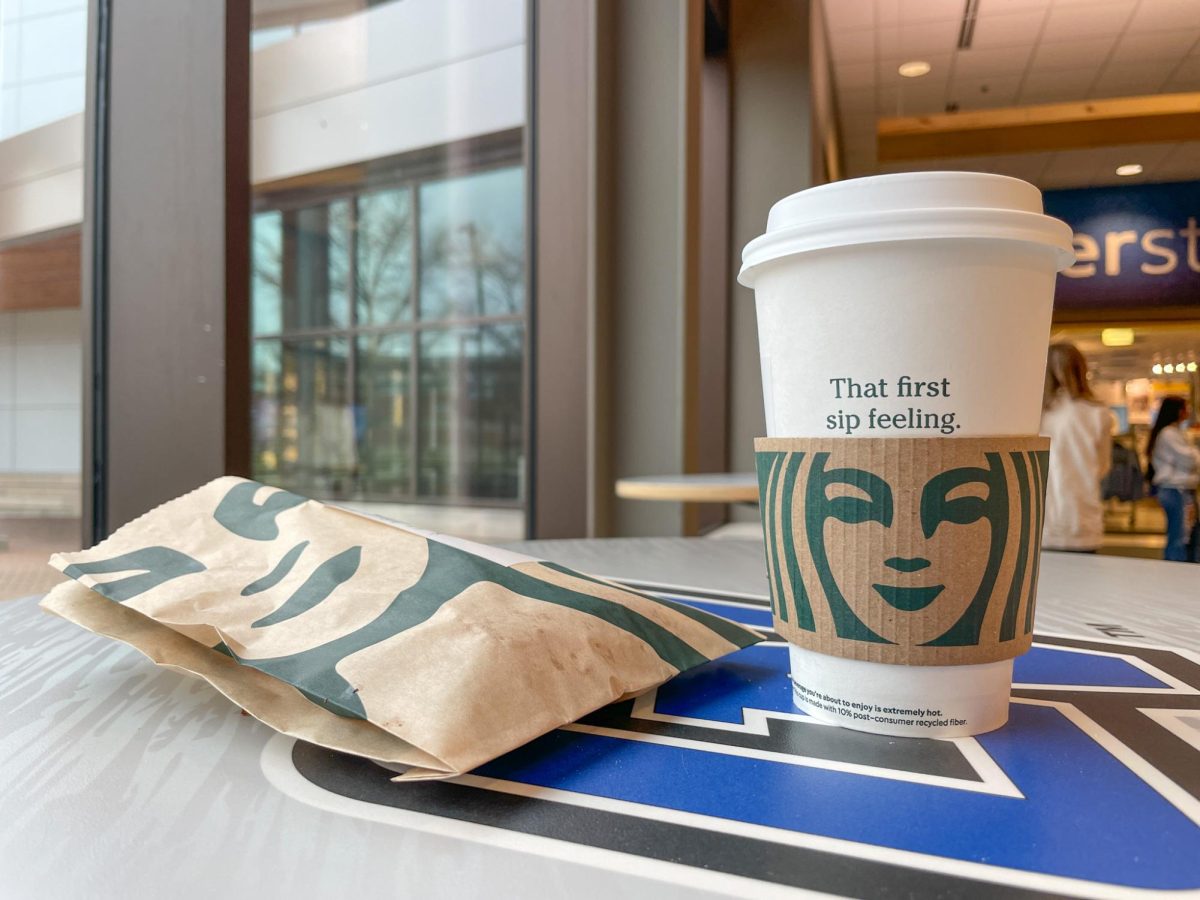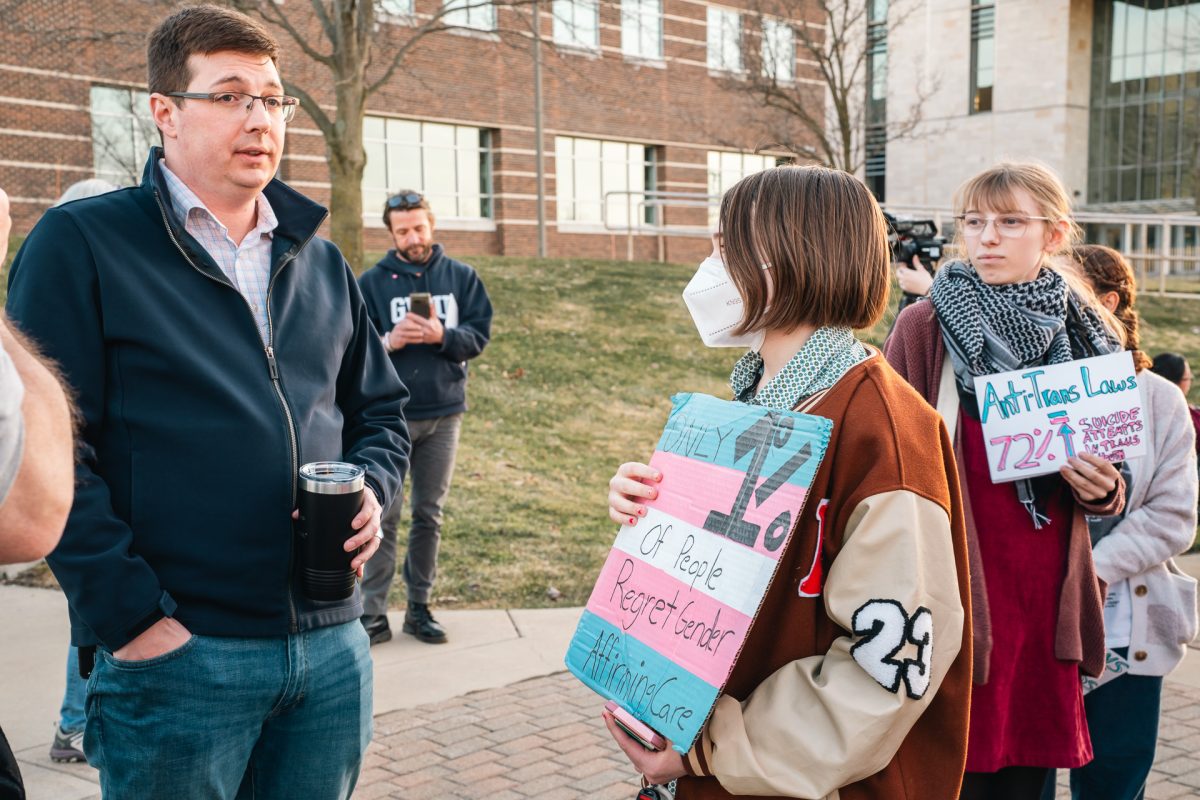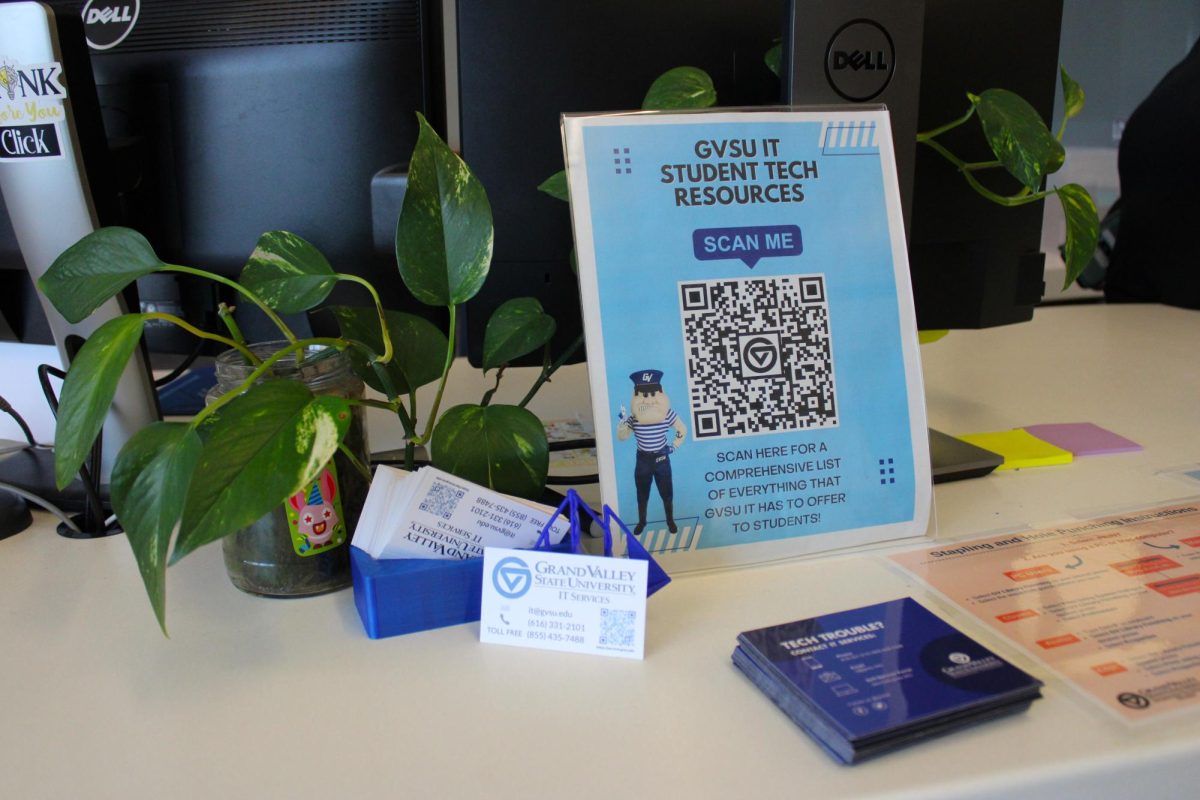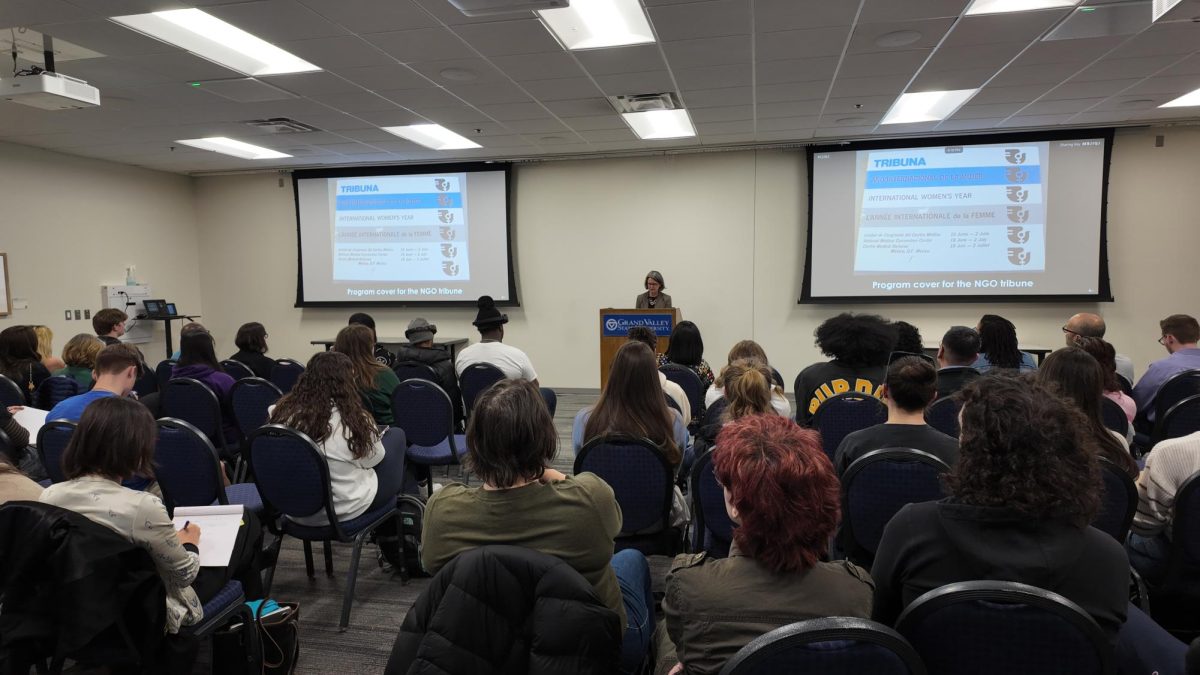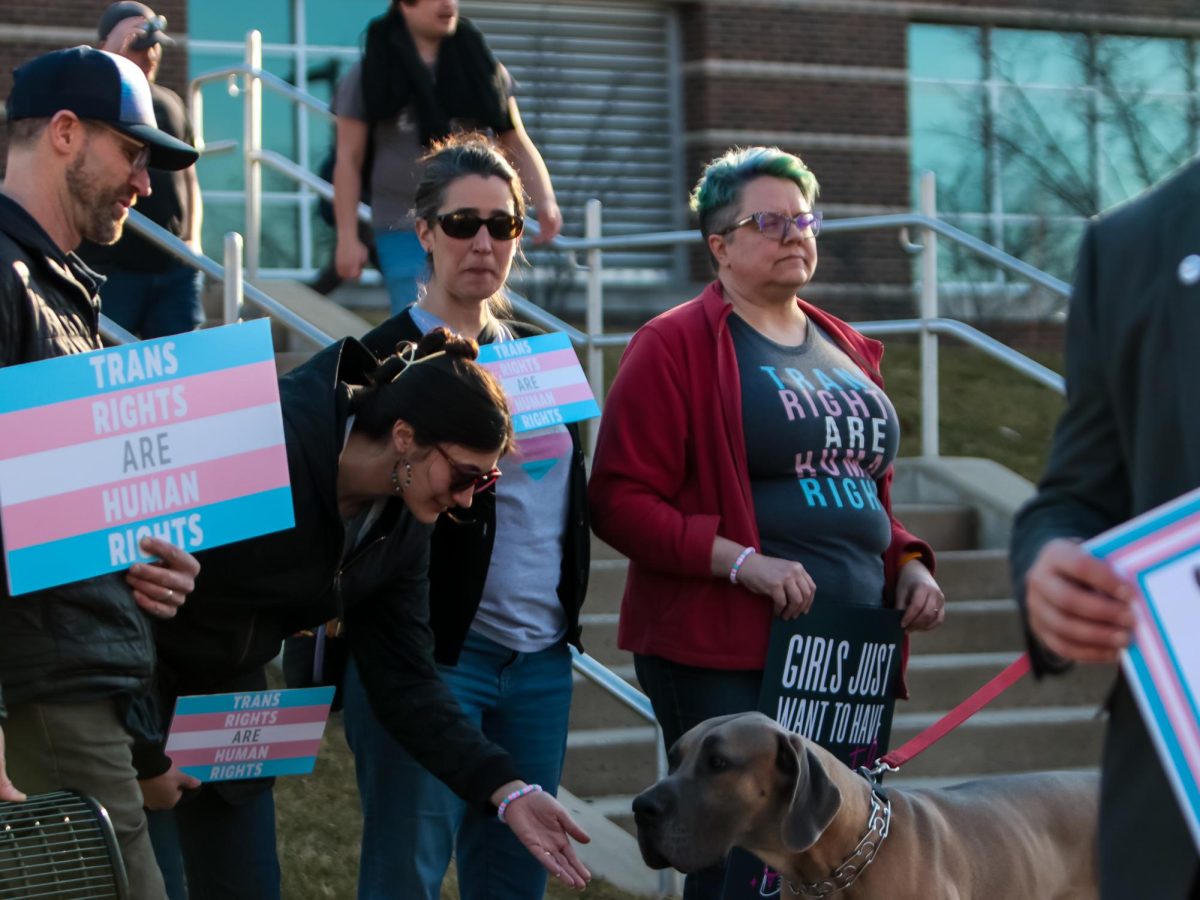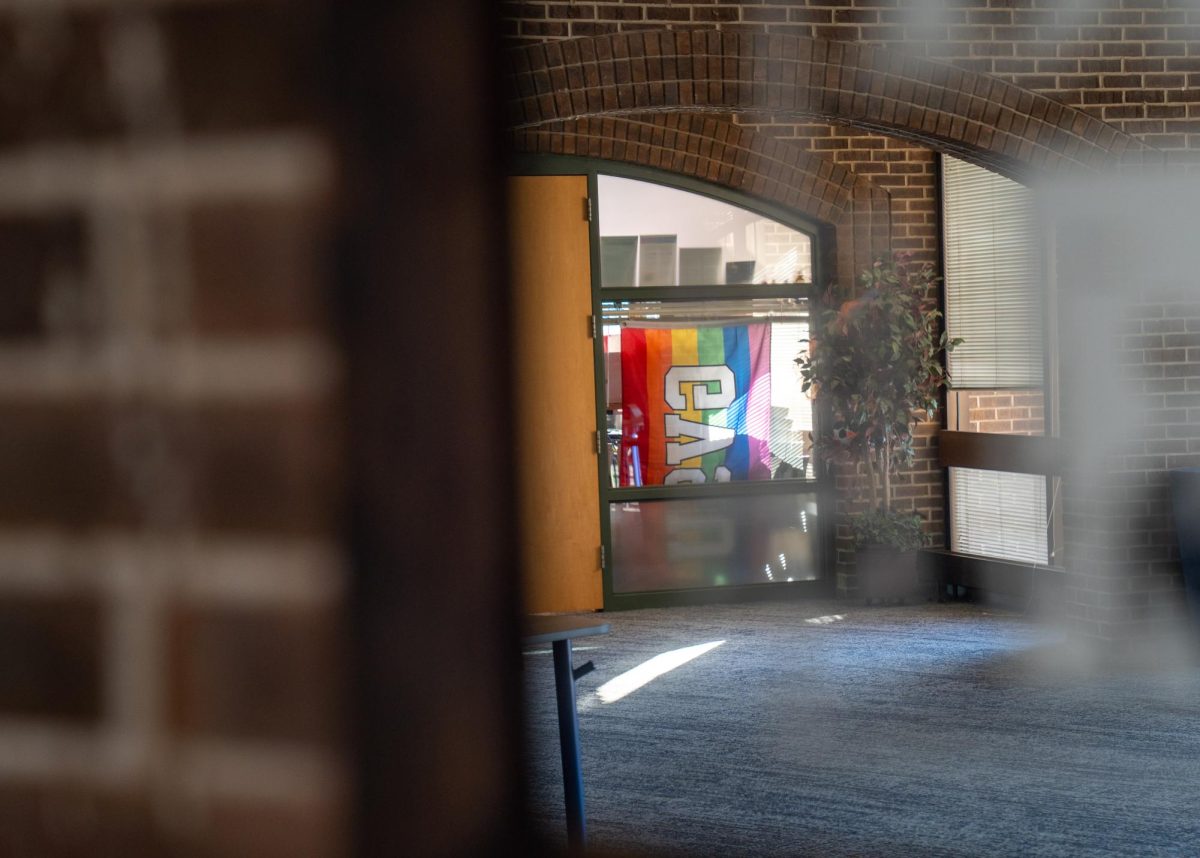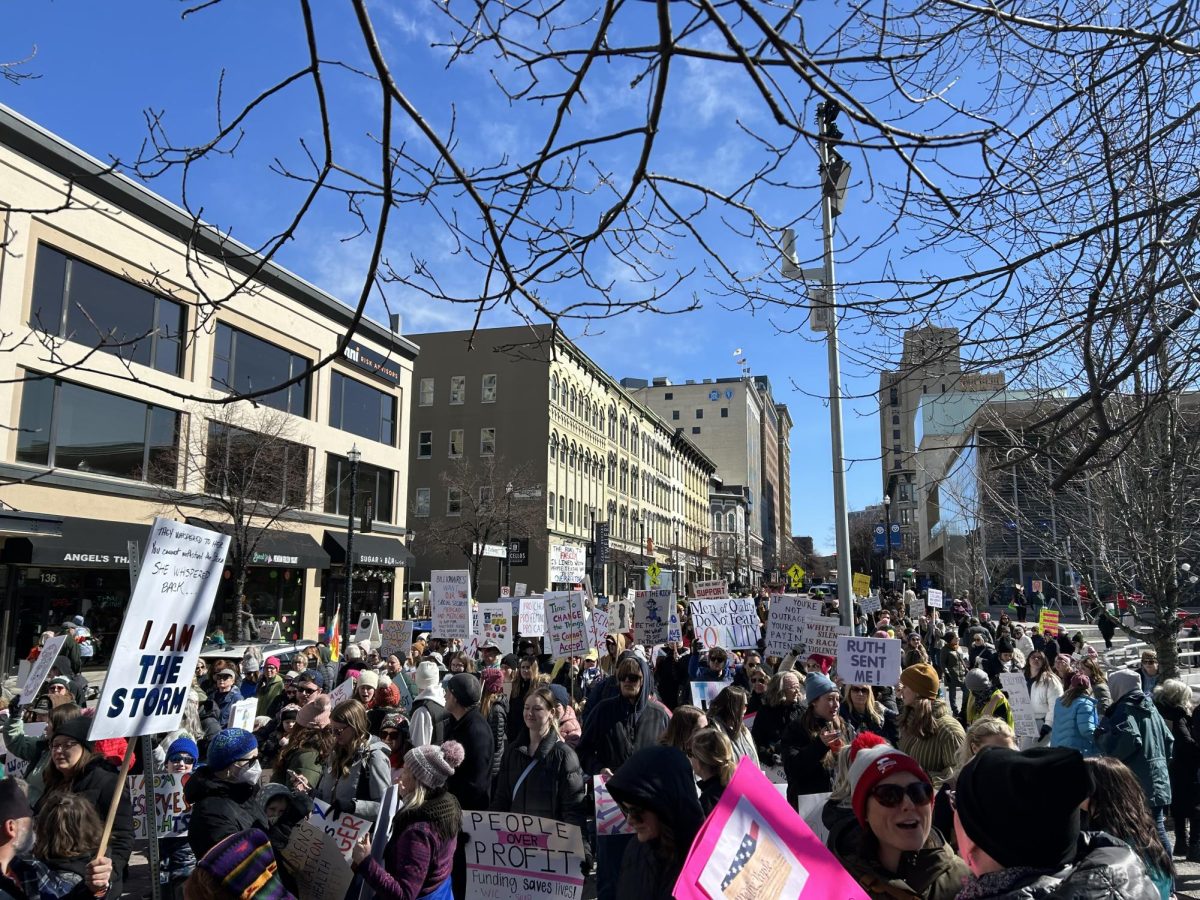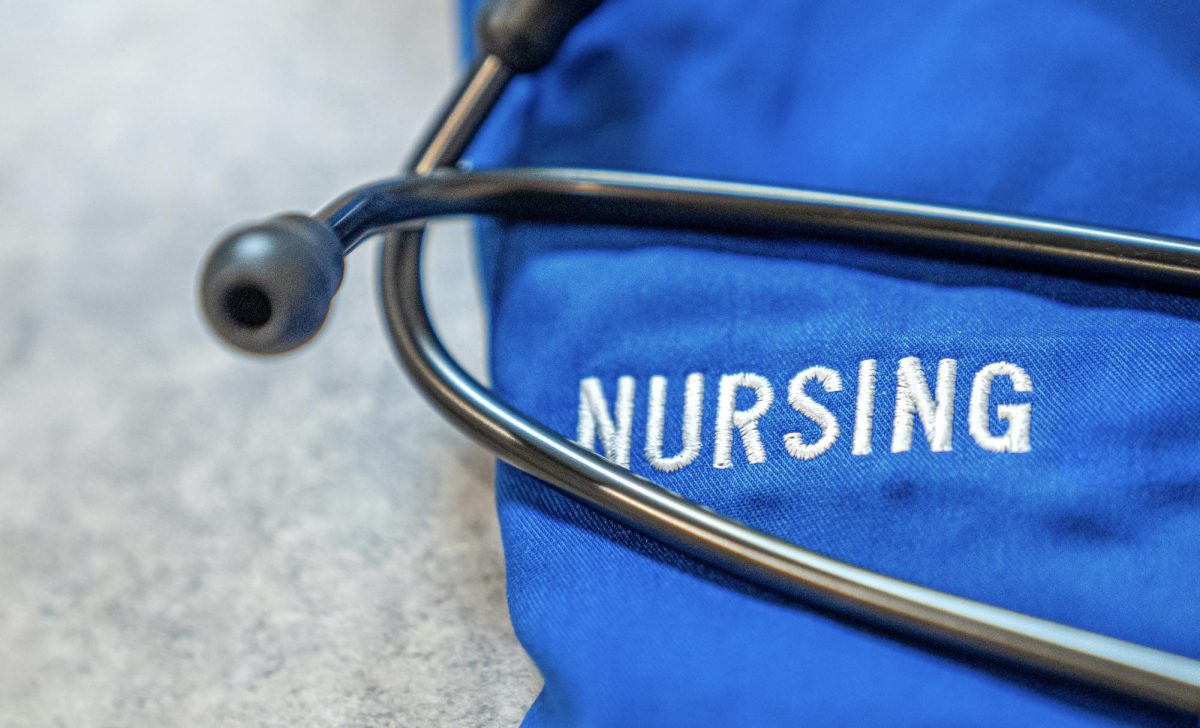For many college students, caffeine is what keeps them going. At Grand Valley State University, students are drawn toward caffeine to keep them alert and energized throughout the day. However, the rate at which college students consume caffeine may defeat its purpose, as many students have built a tolerance to caffeine’s effects through its inclusion into their everyday routine.
Especially in a university setting, opportunities for caffeine consumption come in a wide variety. Whether one consumes coffee, soda, or energy drinks, there are many options at dining locations, coffee shops, or POD stores on campus. The most popular sources of caffeine for GVSU students, it seems, are soda or coffee.
A study in 2021 surveyed college students from Florida State University on their personal experiences with caffeine consumption. The survey results showed a correlation between caffeine consumption and a lowered mental health state, though the study concluded more research was needed to determine the causality of students’ lowered mental health. The main source of caffeine in the study was coffee and the main reasons for consumption were either to focus and study outside of class or enjoyment.
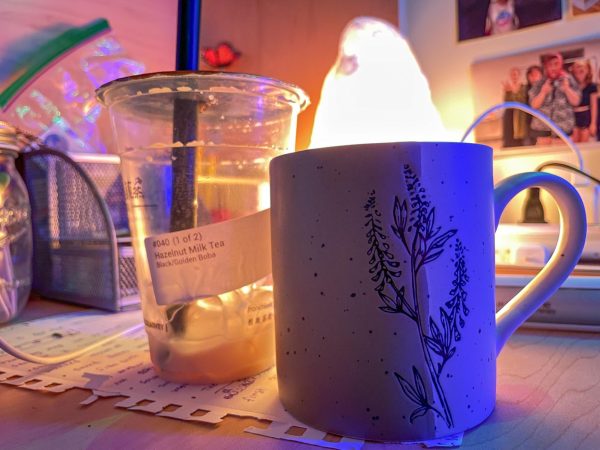
GVSU sophomore Jennifer Bushey said she typically consumes about 300mg to 500mg of caffeine a day. She feels she has built a tolerance for caffeine, but will continue to drink it to stay focused and alert in school.
“It helps me to stay on task, which helps my mental health,” Bushey said.
According to the study data, college students tend to consume about 800 mg/day. This is a high amount of caffeine, about double the recommended safe dosage. Further, the U.S. Food and Drug Association (FDA) considers 1,200 mg of caffeine the threshold of when consumers start to experience negative health effects. The study found that there were higher levels of anxiety in correlation with caffeine intake, however, there may be other variables at play. Contrastingly, research also shows that coffee offers many health benefits, including reducing the risk for certain cancers and lowering the risk of strokes.
When caffeine is consumed, it blocks adenosine receptors in the body, affecting brain functions like sleep, cognition, learning and memory. However, when the body recognizes that adenosine is being blocked, the body responds by creating more receptors. This can create caffeine resistance. Several students at GVSU feel the frequency with which they consume caffeine has resulted in a “tolerance” for its effects, which has led them to consume more in order to be alert. However, some students feel that when they drink lots of caffeine to combat tiredness or boost their energy, they feel heightened anxiety and a feeling described as “jittery.”
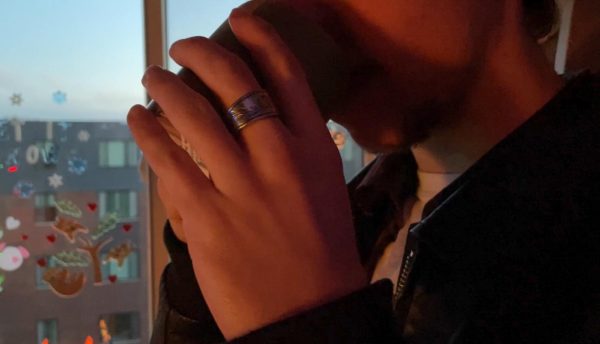
GVSU junior Hannah Bernhardt said she only has caffeine once a week or less. Bernhardt said she typically will drink coffee or Alani energy drinks if she needs an energy boost, though she thinks people shouldn’t drink caffeine every day.
“When I do have caffeine it’s because I didn’t get enough sleep the night before or I have a long day ahead of me that I need to get through,” Bernhardt said. “I don’t think caffeine is horrible, but I don’t think people should have it every day or that they should rely on it for their daily lives. I don’t want people to consume too much caffeine and have issues later because they can’t live without it.”
Energy drinks and soda tend to have high levels of both sugar and caffeine and can have adverse effects on health if consumed too frequently. For instance, one bottle of Dr. Pepper has 41 mg of caffeine and 40g of sugar. Monster energy drinks have 160 mg of caffeine and varying amounts of sugar.
GVSU student junior Makenna Krylowitz, said she used to drink high amounts of caffeine every day to keep up with physical activity and stay on top of homework. However, Krylowitz said the caffeine and sugar “all caught up with her” when she had kidney stones around the end of the fall semester last year.
“Before my kidney stones, I did around four hours of physical activity every day and used to drink Celsius constantly. It was the only thing I really drank other than water,” Krylowitz said.
Krylowitz said she still drinks energy drinks, coffee and pop but is trying to stop drinking them because of adverse effects.
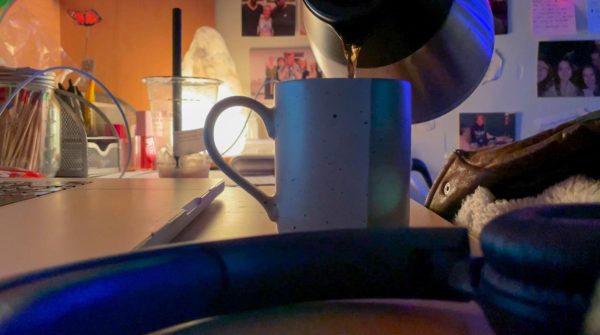
“Caffeine is usually an everyday thing, between coffee, energy drinks, or a pop. I usually drink it to kick some energy in,” Krylowitz said. “I do notice that because I’ve had caffeine every day, the days I don’t drink one caffeinated drink I get terrible headaches. But, I have been a lot better than what I used to (be) after kidney stones.”
Though there are many health effects of elevated caffeine consumption, many students feel the energy boost and elevated focus are worth any adverse health effects that could come from their daily doses of caffeine.





